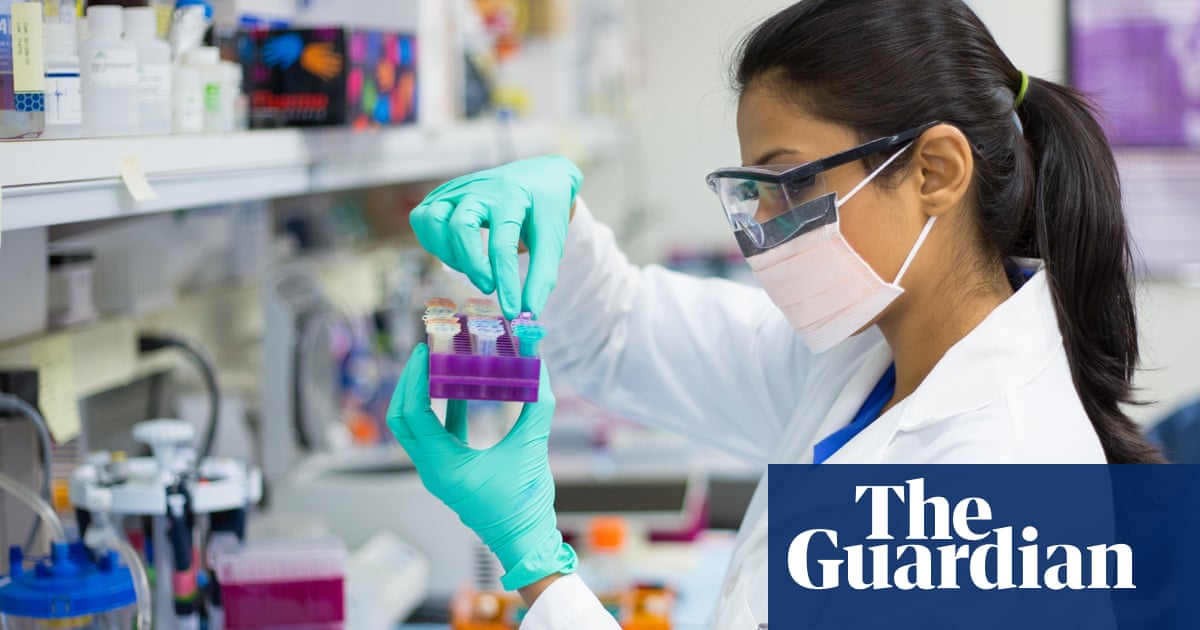
Scientists have developed a simple DNA test that can identify 18 early-stage cancers that experts say could represent a medical “gamechanger”.
Cancer accounts for one in every six deaths worldwide, but early detection can significantly improve outcomes. Existing screening tests have drawbacks, including invasiveness, cost and low levels of accuracy for early stage disease.
Now US researchers have designed a test that analyses proteins in the blood and can pick up 18 early stage cancers, representing all main organs in the human body.
Specific blood proteins could already be used for early detection and monitoring, but until now tests have lacked sensitivity – accuracy of picking up those with cancer – and specificity – accuracy of excluding those without cancer, the researchers said.
The team, from the US biotech firm Novelna, said their test outperformed others relying on tumour DNA in the blood, and had “a sensitivity much greater” than the Galleri test being trialled on the NHS in the UK.
By looking at proteins in blood plasma, the experts were able to differentiate cancer samples from normal ones, and even distinguish between different types of cancers “with high accuracy”, they said. The research also found evidence that cancer protein signals were likely to be sex-specific.
Writing in the journal BMJ Oncology, the team said: “This finding is the foundation for a multi-cancer screening test for the early detection of 18 solid tumours that cover all major human organs of origin for such cancers at the earliest stage of their development with high accuracy.”
They added: “This could re-shape screening guidelines, making this plasma test a standard part of routine check-ups.”
“These findings pave the way for a cost-effective, highly accurate, multi-cancer screening test that can be implemented on a population-wide scale.”
Blood plasma samples were collected from 440 people diagnosed with 18 different types of cancer, and from 44 healthy blood donors.
The team then identified proteins which showed early stage cancers and where they originated in the body “with high accuracy”.
The team wrote: “At stage I (the earliest cancer stage) and at the specificity of 99%, our panels were able to identify 93% of cancers among males and 84% of cancers among females.
“Our sex-specific localisation panels consisted of 150 proteins and were able to identify the tissue of origin of most cancers in more than 80% of cases.”
Analysis of the plasma protein also showed almost all of them were present at very low levels. This shows the importance of low-level proteins to pick up pre-cancerous and early stage disease before a tumour has had time to cause substantial damage, the team said.
However, the team said their relatively small sample size meant further studies were needed in bigger groups of people.
Dr Mangesh Thorat, of the Centre for Cancer Prevention at the Wolfson Institute of Preventive Medicine, who was not involved with the study, said there remained questions about the test and more studies were needed.
“However, the interesting aspects of this assay are a much higher sensitivity for stage I cancers than other similar assays in development and gender-specific performance differences which are biologically and clinically relevant,” he said.
“If the assay performance in future, well-designed sequential studies is anywhere close to what this preliminary study suggests, then it could really be a gamechanger.”
Prof Paul Pharoah, a cancer epidemiology expert at Cedars-Sinai Medical Center, who was also not involved in the study, welcomed the findings but urged caution.
“Simple blood tests that can detect many different cancers in the early stages (test is sensitive) and do not generate false positives (test is specific) are a holy grail for early detection,” he said.
“This paper reports on the initial results of the development of one such test. While the results show some promise, it is far too soon to be confident that this test will turn out to be useful for early cancer detection.”
"stage" - Google News
January 10, 2024 at 09:31AM
https://ift.tt/liAxJBd
DNA test can detect 18 early stage cancers, scientists say - The Guardian
"stage" - Google News
https://ift.tt/eaqYJkw
https://ift.tt/VcoBOxY
Bagikan Berita Ini















0 Response to "DNA test can detect 18 early stage cancers, scientists say - The Guardian"
Post a Comment